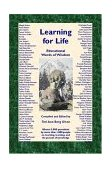

Wolfgang Amadeus Mozart
Austrian Composer
1756 - 1791
“Mozart makes you believe in God because it cannot be by chance that such a phenomenon arrives into this world and leaves such an unbounded number of unparalleled masterpieces.” ~Sir Georg Solti, conductor
Wolfgang Amadeus Mozart was born on January 27, 1756 to Leopold and Anna Maria Pertl Mozart in Salzburg, Austria. At that time the region was part of the Holy Roman Empire of the German Nation. The baptismal record gives Mozart’s name in Latin as Joannes Chrysostomus Wolfgangus Theophilus Mozart. As an adult he would sign his name “Wolfgang Amadè Mozart” or simply “Mozart.” Raised in a Roman Catholic home, Mozart remained a loyal member of the Church throughout his life, saying: “It is a great consolation for me to remember that the Lord, to whom I had drawn near in humble and child-like faith, has suffered and died for me, and that He will look on me in love and compassion.”
Mozart was born six years after Johann Sebastian Bach’s death and fourteen years before Ludwig van Beethoven’s birth. So it seems fitting that Mozart is often ranked alongside Bach and Beethoven as one of the top three musical geniuses in history. Of course, many would say he was the greatest composer of all. Mozart showed remarkable musical aptitude at an early age. He learned quickly and was playing the harpsichord by age 4, composing music at age 5, and he performed his first recital at age 6 for the Empress of Austria. Mozart mastered both violin and organ by age 7, wrote his first symphony at age 9, and his first opera when he was 12.
Mozart never went to school and was taught by his father, a professional musician and scholar. Leopold Mozart was a violinist and experienced teacher who wrote and self-published a textbook on violin instruction entitled, “A Treatise on the Fundamental Principles of Violin Playing.” However, Leopold set aside his own career when his son’s outstanding musical talents became evident. Recognizing his son’s enormous potential, Leopold devoted most of his time to Mozart’s musical education and took him on concert tours throughout Europe. These childhood journeys enabled Mozart to meet many prominent musicians of the day and become acquainted with a wide variety of musical styles. Mozart’s father not only taught him music, but assumed responsibility for all of his education including languages and academic subjects.
Mozart was proficient on the harpsichord, clavichord, pianoforte, organ, violin and viola. At the age of 14, Mozart became concertmaster at the court of the Archbishop of Salzburg. But he was poorly treated and sought to find a better job. Mozart left Salzburg at age 25 to seek his fortune in Vienna. He married Consanza Weber there in 1782. They had several children, but only two of them lived past infancy. Mozart gave performances, sold musical compositions, and gave music lessons. With a habit of spending more than he earned, he was often in debt but lived in a lavish, seven-room apartment and was not penniless as commonly assumed. After a long period of overwork and declining health, Mozart died in 1791 following a short illness. He was only 35 years old.
During his brief lifetime, Mozart created over 600 different compositions in a wide range of musical genres, from dances of just a few measures to full-length operas. In addition to being a prolific composer, he excelled in a greater number of musical genres than anyone else. One of the few composers to master both the symphony and the opera, Mozart wrote 22 operas and 48 symphonies. He composed concertos, sonatas, string quartets, string quintets, choral, orchestral, and chamber music. Mozart wrote many works for solo piano and he popularized the piano concerto. He also wrote masses, hymns, and other religious music; as well as dances, divertimentos, serenades, and other forms of light entertainment.
Shortly after Mozart’s death, biographers began to piece together accounts of his life, relying on the testimony of those still living who knew him, as well as surviving correspondence. During this period, Mozart’s reputation rose substantially, giving him somewhat of a legendary status. Mozart’s position as a great classical composer came from his innovative experimentation with musical genres, as well as the sheer amount of compositions he left behind. His works have remained among the world’s most admired pieces of music. Perhaps even more important is the influence that Mozart has had on composers of later generations. Ever since the surge of interest in Mozart following his death, studying his scores has been a standard part of the training of classical musicians.
Mozart’s music has a lively spirit and beautiful melodies that still sound fresh when performed today. “Mozart’s music can best be described as containing natural order and balance ... and having a focus on harmony and uncomplicated-yet-unforgettable melody. His later works concentrate on expressing human emotion and psychology through music and to this end, he developed a degree of subtlety rarely found in any classical composer.” [Quote from www.mozart.biz]
Another genius, Albert Einstein, was a great admirer of Mozart. One of Einstein’s favorite pastimes was playing the violin, an instrument that he took up at age 6, and which he continued to play throughout his life. Einstein was especially fond of Mozart music because it liberated his brain and inspired him, opening his mind to think and imagine. Thus, the “Mozart Effect” owes its roots to the famous scientist!
Many people have likely heard and enjoyed Mozart compositions without even realizing it. “Eine Kleine Nachtmusik” is probably Mozart’s best loved work. His most popular symphony is Symphony No. 40 in G minor K550. His most famous opera is “The Marriage of Figaro.” Other well-recognized tunes include the Turkish Rondo from his Piano Sonata in A, and Piano Concerto No. 21. Another favorite piece that Mozart wrote was “Variations on Twinkle, Twinkle Little Star.” Mozart didn’t actually compose the song himself, but his variations of it are well known. Finally there is the Requiem (Funeral) Mass in D minor which, ironically, Mozart was working on when he died.
“The music of Mozart is of such purity and beauty that one feels he merely found it – that it has always existed as part of the inner beauty of the universe waiting to be revealed.” ~Albert Einstein
References
http://www.mozartproject.org/biography/bi_56_60.html (The Mozart Project.)
http://ring.mithec.com/side/mozart.html (Mozart: the absolute wonder of the world.)
http://www.mozart.biz (The Life and Music of Mozart.)
Mozart: A Life , by Maynard Solomon.
, by Maynard Solomon.
Subscribe to my Knowledge House Newsletter and get a famous homeschool biography once per month - plus a set of FREE e-books!
Click here for more details or to sign up.
Do you know of any famous homeschoolers or homeschool parents not listed here?
Contact: . Thanks! Please click here for reprint permission.


This website is a project of:

These pages are a continuous work in progress.
Copyright © 2000- by Teri Ann Berg Olsen
All rights reserved.









